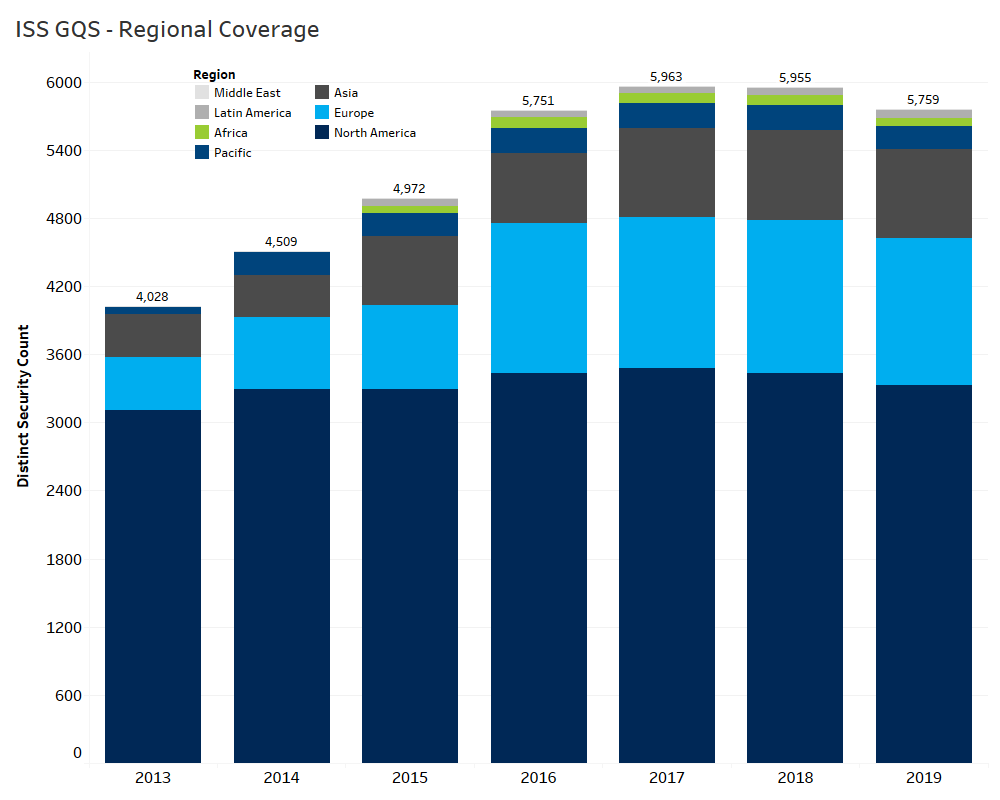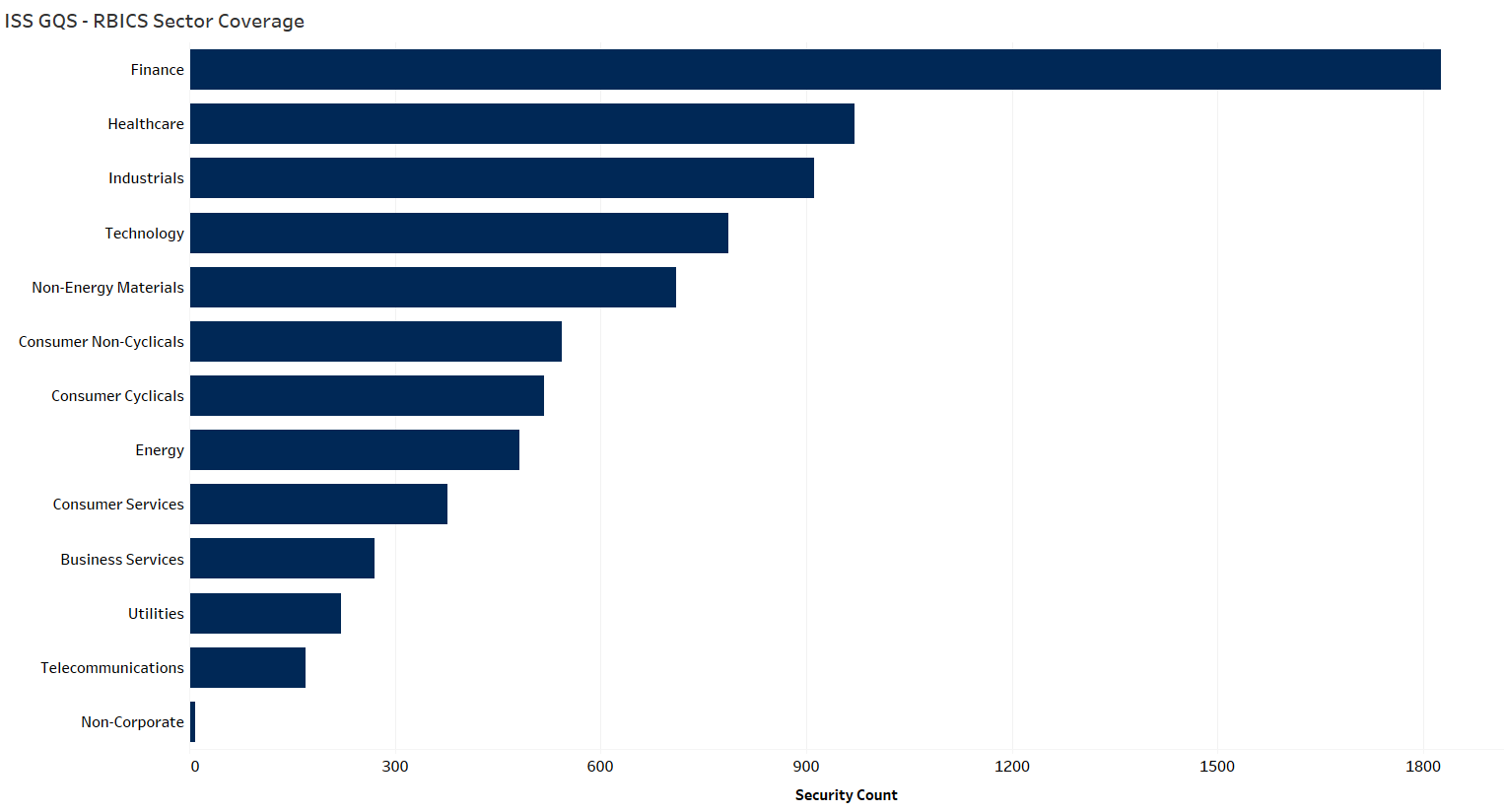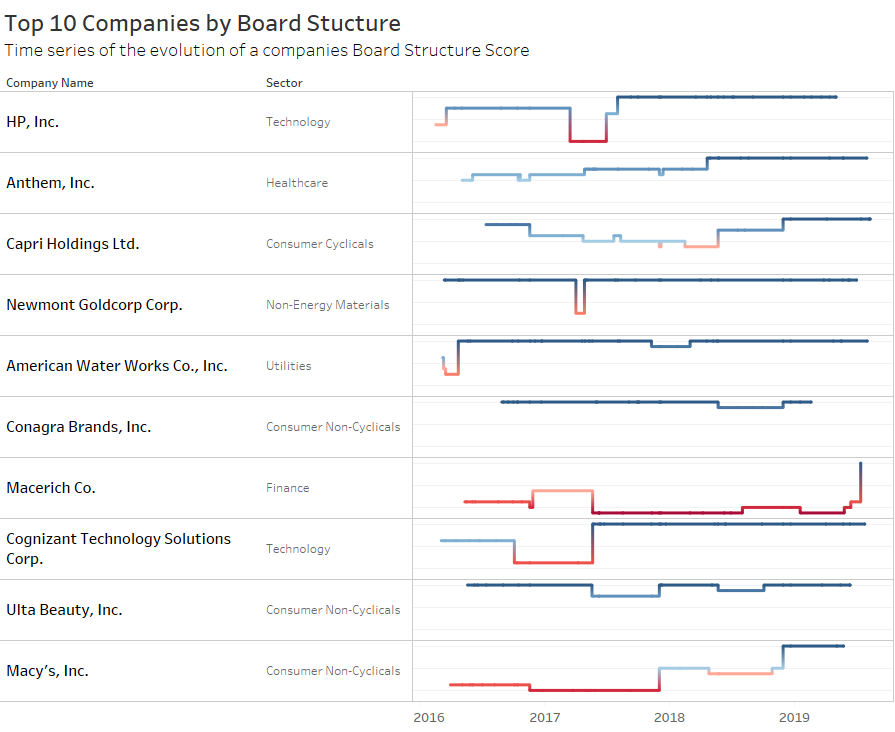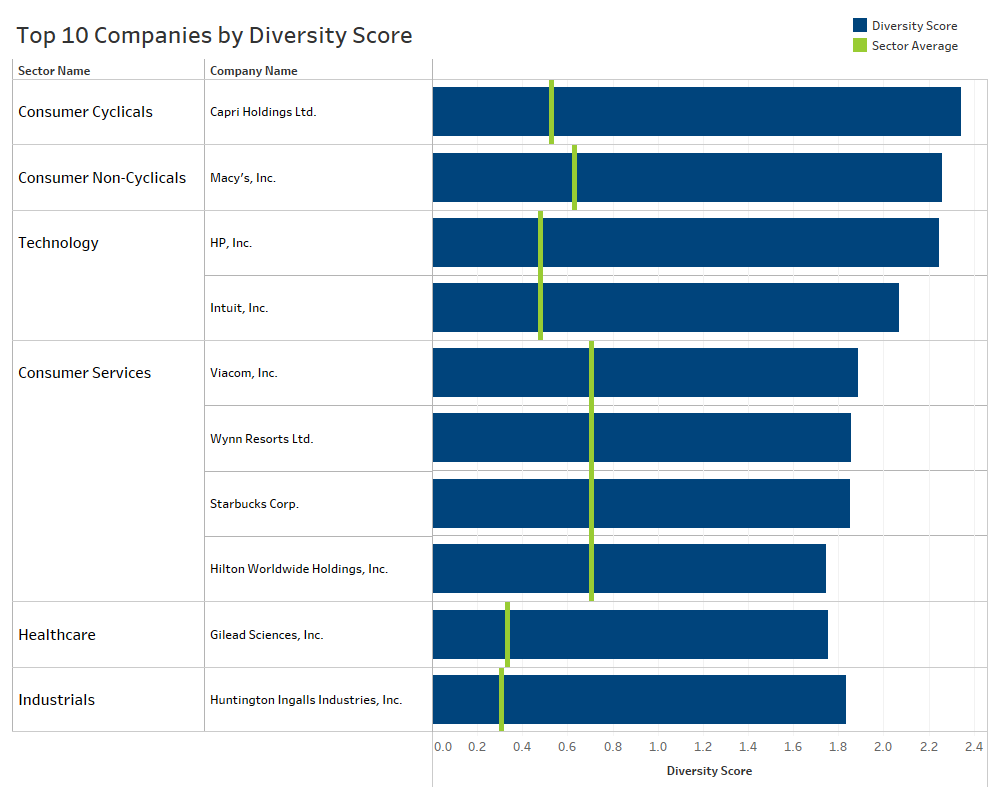The Basics
The ISS ESG Governance QualityScore (GQS) is a robust data-driven scoring and screening solution designed to assist institutional investors in reviewing a company’s governance quality and governance risk. Scores are provided at both an overall company level and at four categories covering Board Structure, Compensation, Shareholder Rights, and Audit & Risk Oversight, which indicate relative governance quality supported by factor-level data. There are more than 230 factors included in GQS, with specific factors varying by region.
The Coverage
ISS ESG Governance QualityScore global coverage comprises approximately 5,800 publicly-traded companies in 30 markets. History for ISS GQS extends back to 2013. Coverage including history is approximately 7,800 companies.
The chart below highlights the company coverage by geographic region over time. GQS scores one primary security per company. Coverage has expanded coverage in certain countries since its 2013 inception, reflecting the increases seen in the chart below (i.e. adding coverage in China, India, and South Korea in 2015, or expanding in Europe in 2016).

The chart below highlights the breakdown of coverage by RBICS Sectors. GQS is indiscriminate to the coverage by sector; sector allocation is determined by the classification of covered companies by country.

The Differentiators
With three decades of experience, Institutional Shareholder Services Inc. (ISS) is one of the world’s leading providers of corporate governance and responsible investment (RI) solutions for asset owners, asset managers, hedge funds, and asset service providers. The ISS ESG Governance QualityScore DataFeed leverages ISS’s industry-leading global footprint, which includes deep legal and language expertise across key global capital markets. This expertise allows for governance rankings relative to an index and region, ensuring that the factors leveraged for a company’s rankings are relevant to the market(s) in which it operates.
ISS GQS calls upon a library of more than 230 governance factors across its coverage universe, of which up approximately 120 are used for any one company as defined by the company’s region. Factor data is structured in a question and answer format. Additionally, ISS utilizes companies’ answers to create scores, divided into the four categories (Board Structure, Compensation, Shareholder Rights, and Audit & Risk Oversight) and aggregated for the overall ISS GQS.
These factors draw from a variety of different sources, including the annual filing of companies’ proxies, annual reports, 10-Ks, circulars, meeting notices, and other publicly disclosed materials related to a company’s annual general meeting (AGM). Event-driven updates, such as director appointments or regulatory investigations, are captured post-event from 8-K or other regulatory filings. Over the past 30 years, ISS has employed a set of rigorous controls to validate the integrity of data collected in-house, ensuring consistency in collecting and data validation across ISS’ global teams. ISS has also built out data diagnostics to detect potential errors and allow its analysts to verify historical data against disclosures.
In addition to these efforts, ISS allows companies to submit changes to their ISS GQS answers. These submissions are reviewed for approval by ISS before making it into the product. ISS’s annual methodology review ensures that the GQS methodology remains in step with ISS benchmark policies as it adapt to reflect developments in regulatory and market practice.
Example Use Case
ISS ESG Governance QualityScore provides an indication of relative governance quality and is supported by factor-level data that is critical to the research process, while historical scores and data provide greater context and trend analysis to understand a company’s approach to governance over time.
One use-case of the ISS GQS DataFeed is portfolio construction via positive and negative screening. ISS GQS provides summary level values within the Scores table, alongside a numeric, decile-based score that indicates a company’s governance risk relative to their index or region. A score in the 1st decile (QS:1) indicates relatively higher quality governance practices and relatively lower governance risk, and, conversely, a score in the 10th decile (QS:10) indicates relatively lower quality governance practices and relatively higher governance risk. This allows for a simple ranking of companies within various markets to identify quickly which companies are best and worst within the categories of Board Structure, Compensation, Shareholder Rights, and Audit & Risk Oversight.
Using Board Structure as the basis for analysis, these decile scores can be used to identify top companies in the S&P 500 as it relates to topics such as board diversity, board practices, and board related controversies. Viewing the top 10 companies by Board Structure, we see results from a variety of different sectors and can get a better understanding of who has maintained good board practices through time and who has improved.

Taking a deeper dive and performing more granular screening is then possible with the variety of factors that are available within the GQS Answers file. With over 230 different factors and up to 120 for a single company, a user can fully understand the logic behind how ISS scores a company from the perspective of Board Structure, Compensation, Shareholder Rights, and Audit & Risk Oversight.
Sticking with Board Structure as a focus, ISS provides over 85 unique factors pertaining to a company’s board. Additionally, ISS offers 7 Board Structure subcategories to characterize how it views governance. See the table below for a breakdown of these subcategories and the number of questions assigned to each.
|
Board Structure Subcategory
|
Question Count
|
|
Composition of the Committees
|
26
|
|
Board Practices
|
18
|
|
Board Composition
|
15
|
|
Diversity
|
9
|
|
Controversies
|
8
|
|
Board Policies
|
6
|
|
Related Party Transactions
|
4
|
If an interest is finding companies with Board Diversity, it is possible to dig into the specific factors. For example, ISS GQS provides 9 factors concerning Board Diversity. The answers to these 9 questions can be leveraged to create custom weights and scores. Alternatively, a simple aggregation can be formed to rank companies on relevant questions using the ISS-provided weighting scheme column. With this, a new list of companies emerges fitting a more specific need of identifying companies with diverse board structures.
The following chart displays the top 10 companies ranked by the custom Diversity Score. Included is the RBICS Sector in which the company falls and the average score for the sector.

Digging into Starbucks and the nine Diversity-related questions, it is easy to understand why Starbucks rank so highly. The chart below highlights the diverse make-up of its board.
|
Question
|
Answer
|
Points*
|
|
What proportion of non-executive directors on the board has lengthy tenure?
|
37.5
|
-0.05
|
|
How many women are on the board?
|
4
|
0.10
|
|
Does the board have any mechanisms to encourage director refreshment?
|
No
|
0
|
|
What is the proportion of women on the board?
|
40
|
0.10
|
|
What proportion of non-executive directors has been on the board less than 6 years?
|
37.5
|
0.50
|
|
How many women serve in leadership roles on the board?
|
2
|
0.40
|
|
How many women are named executive officers at the company as of the last annual meeting?
|
1
|
0
|
|
What is the standard deviation of director age?
|
9.93
|
0.60
|
|
What is the standard deviation of director tenure (in years)?
|
5.51
|
0.10
|
*For illustrative purposes only
The ISS ESG Governance QualityScore DataFeed provides valuable insight into a company’s governance quality and detailed factor-level data gives users the ability to screen the data to meet specific requirements.
If you have questions or would like to learn more about any of the content mentioned above, please contact us at sales@factset.com.
Please visit the ISS Governance QualityScore product page on the Open:FactSet Marketplace for more information.





